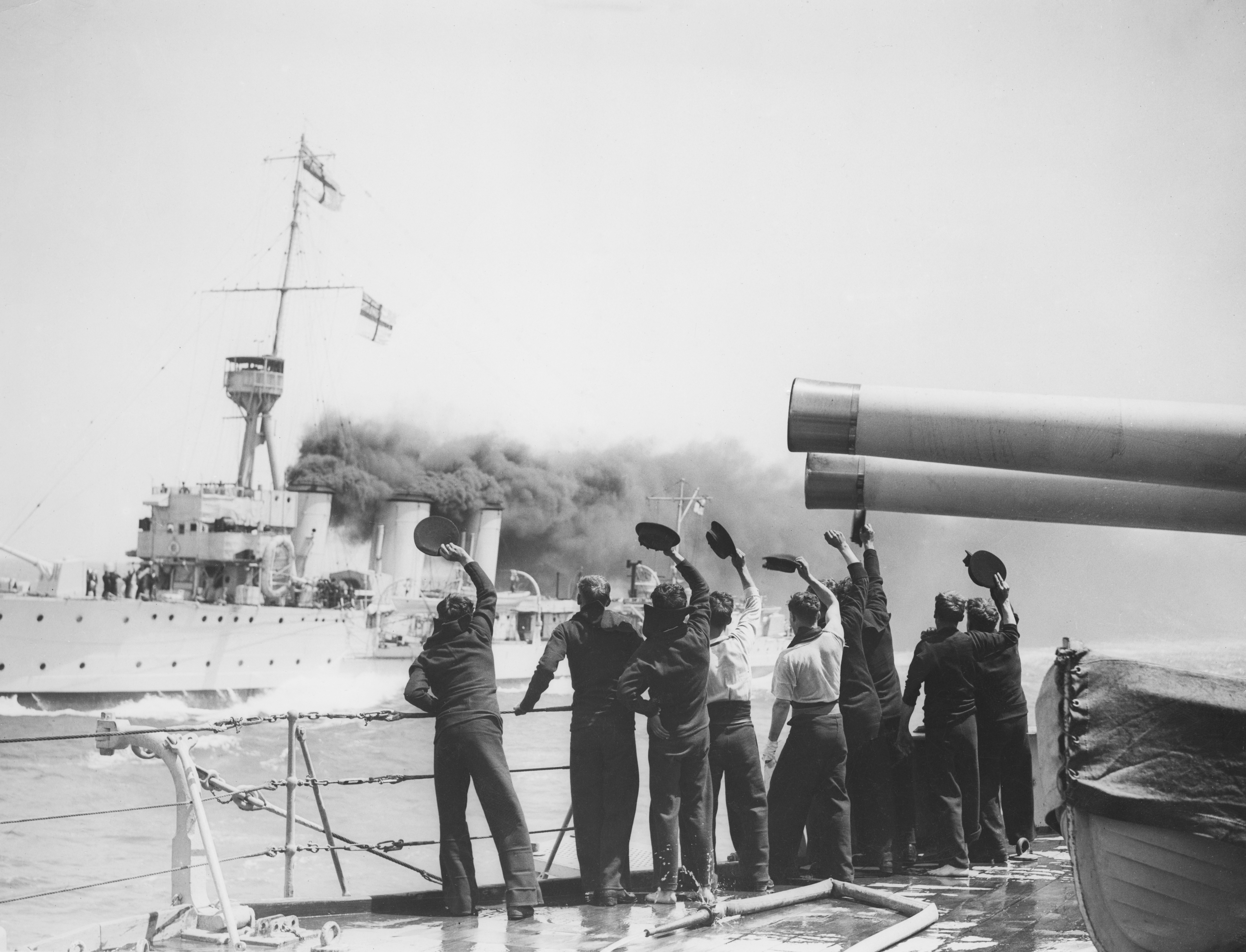
This January Plymouth Arts Centre held a sold-out screening of The Battles of Coronel and Falkland Islands, with an introduction by the Plymouth-based composer, Simon Dobson. Ieuan Jones was there to review the event.
The centenary of the First World War seems like the perfect opportunity for the BFI to reissue this fascinating curiosity from the silent era. The Battles of Coronel and Falkland Islands (1927) recounts two famous naval battles between the British and Germans from the start of the war. These were near Coronel, off the coast of Chile, won by the Germans and involving the loss of two British ships (HMS Monmouth and HMS Good Hope) and the subsequent British victory at the Falklands.
Filmed nearly a decade after the war’s end, mostly near Malta (with the Scilly Isles standing in for the Falklands) this production was timed for armistice day. It is therefore surprisingly candid in its attempt to portray these battles as much from the losing side as the winning. Much has been made of the way in which the German enemy are respectfully portrayed, and it is true that German Admiral von Spee is shown as humble in victory and magnanimous in defeat. It is one of the film’s many points of interest that, prior to the Second World War, even our recent enemy was thought of as an equal, both on and off the field of battle.
The portrayal of the tragic defeat at Coronel, much like the Charge of the Light Brigade, could be seen as a jingoistic attempt to twist a resounding loss into a kind of success – a “defeat as glorious as a victory” as the opening title card puts it. However, the way in which director Walter Summers (himself a war veteran) then builds the tension towards the subsequent battle at the Falklands (albeit with some Dad’s Army-style comic relief) is well done, and must have looked astonishing in its day.
The print looks pristine and the issues involved are timely, although this BFI reissue’s real strength is in its brand new score, as made by local composer Simon Dobson, a recent winner of the of British Composer of the Year.
Dobson is an experienced writer of music for brass and is no stranger to incorporating modern instruments and techniques in his compositions. As explained by Dobson in the introductory talk to this evening’s showing, the score was the result of several months’ tireless work last year that has paid off magnificently in a recorded accompaniment by the Band of Her Royal Majesty’s Marines.
Providing a ubiquitous backdrop to the events as they take place, the full force of battle is strikingly interpreted, although as with any good score it is able to shift its tone, and has many stirring quieter moments as well.
Whether by accident or design, the score’s most effective moment in my view came with the refitting of the battle cruisers HMS Invincible and HMS Inflexible at Devonport. Bringing to mind Shostakovich’s music of terror, the fiery industrial furnace of the shipyard is hammered home thrillingly well. This is not to forget also the score’s great subtlety, particularly in its mimicry of foreground events, such as the sending of telegraph signals and the chatter of the crew below deck. It is with the roar accompanying each canon blast, however, that the score reveals its true potency.
No matter whether or not you are enthusiastic about our naval history or the commemoration of these famous battles, this absorbing reissue with its remarkable new score deserves to be widely seen.
Ieuan Jones
Twitter: @_ieuman








Comments
No comment yet.